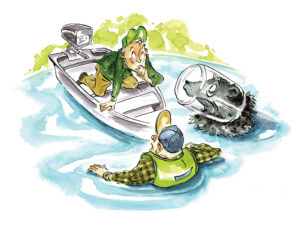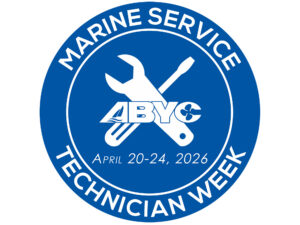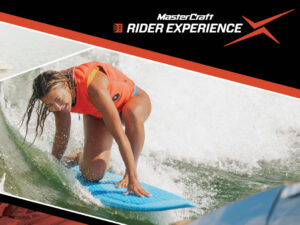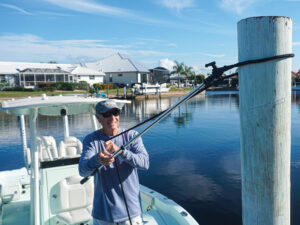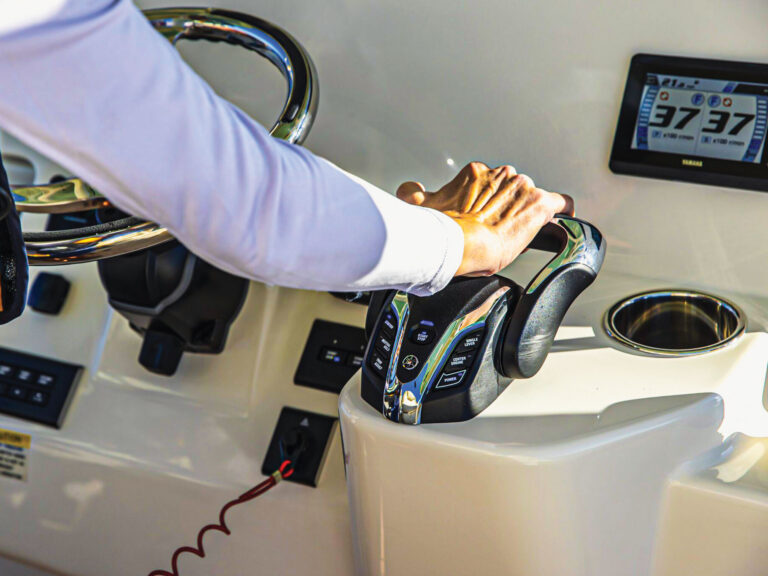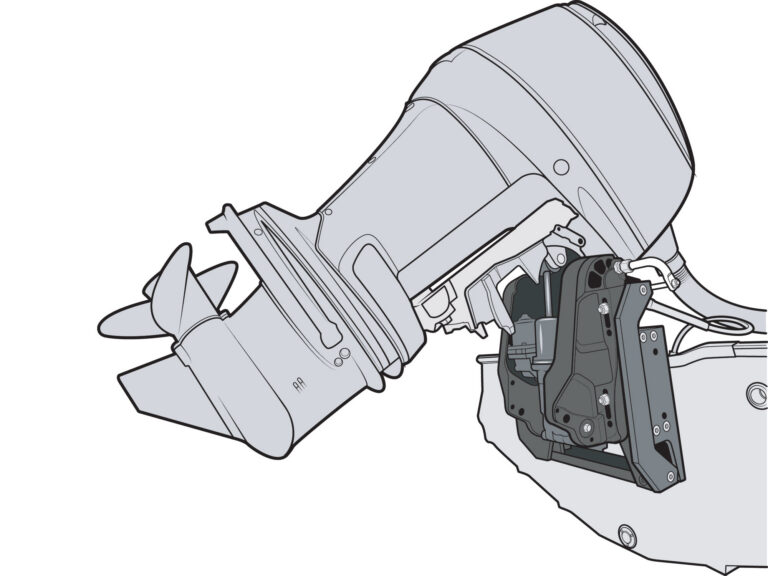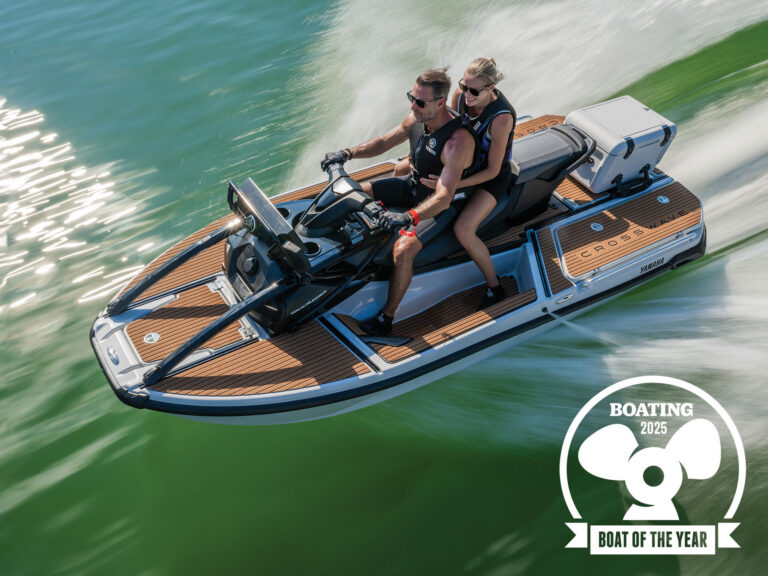
A pair of electric or electro-hydraulic trim tabs should be on the short list of indispensable marine accessory equipment on board any planing powerboat. (It’s the first upgrade I made to my EdgeWater charter boat.) Few things will affect or control the way your vessel rides in a variety of rough sea conditions more than boat trim tabs for small boats. A timely touch of tabs can cure many ills. Let’s take a closer look at when and how to use these plates that extend from the transom.

How Trim Tabs Work to Help Planing
Using trim tabs to get on plane is relatively simple. To correct excessive bow rise, deploy your tabs down all the way and bring your engine or drive to its most negative-trim position. This should flatten your takeoff angle when you punch the throttle(s) and offer improved visibility forward. Once your boat is up on step, adjust the tabs to reduce your hull’s wetted surface and keep level across the beam. Bring your engine(s) trim up accordingly too in order to make the prop as perpendicular to the water as possible for a level running attitude.

Use Trim Tabs to Fix Listing
Shifting loads, crew members in motion, and quartering winds on the bow all affect your boat’s lateral attitude. If your vessel lists, a wet, bumpy and potentially dangerous ride may result. For instance, if wind on your port bow is causing that side of the boat to “dip” into the wind with increased spray and hull pounding, raise the tab on the side of the list (port up) and lower the tab on the leeward side (starboard down).
Drive Trim and Trim Tabs
If the outboard or sterndrive is trimmed completely in against the transom, boat trim tabs may be less effective once up on plane. Always have at least a little positive trim when your boat is up on plane.
Quick Tip: Trim tabs cannot bring the bow of a boat up. That’s where outboard or sterndrive trim comes into play.
Stay on Plane at Lower Speeds with Trim Tabs
As your boat slows from its optimum cruising speed, it may begin to settle at the stern or “squat” with the bow rising up, creating poor visibility, sloppy handling and inefficiency. By bringing both of your trim tabs down and tucking in your outboard drive, you will be able to stay on plane at slower speeds (16 to 18 knots) and reduce pounding.
How to Trim Tabs Help Stop Porpoising
Some boats demonstrate porpoising (cyclic rising and falling of the bow). Trim tabs can’t make up for the reasons for porpoising, which include a hull with too much rocker aft, an outboard mounted too high, or props that create too much bow lift. But a little bit of trim tabs (both down) can tame a bow that’s bobbing without resorting to slowing down or trimming the drive or engine down dramatically, both of which may cause greater inefficiency.

